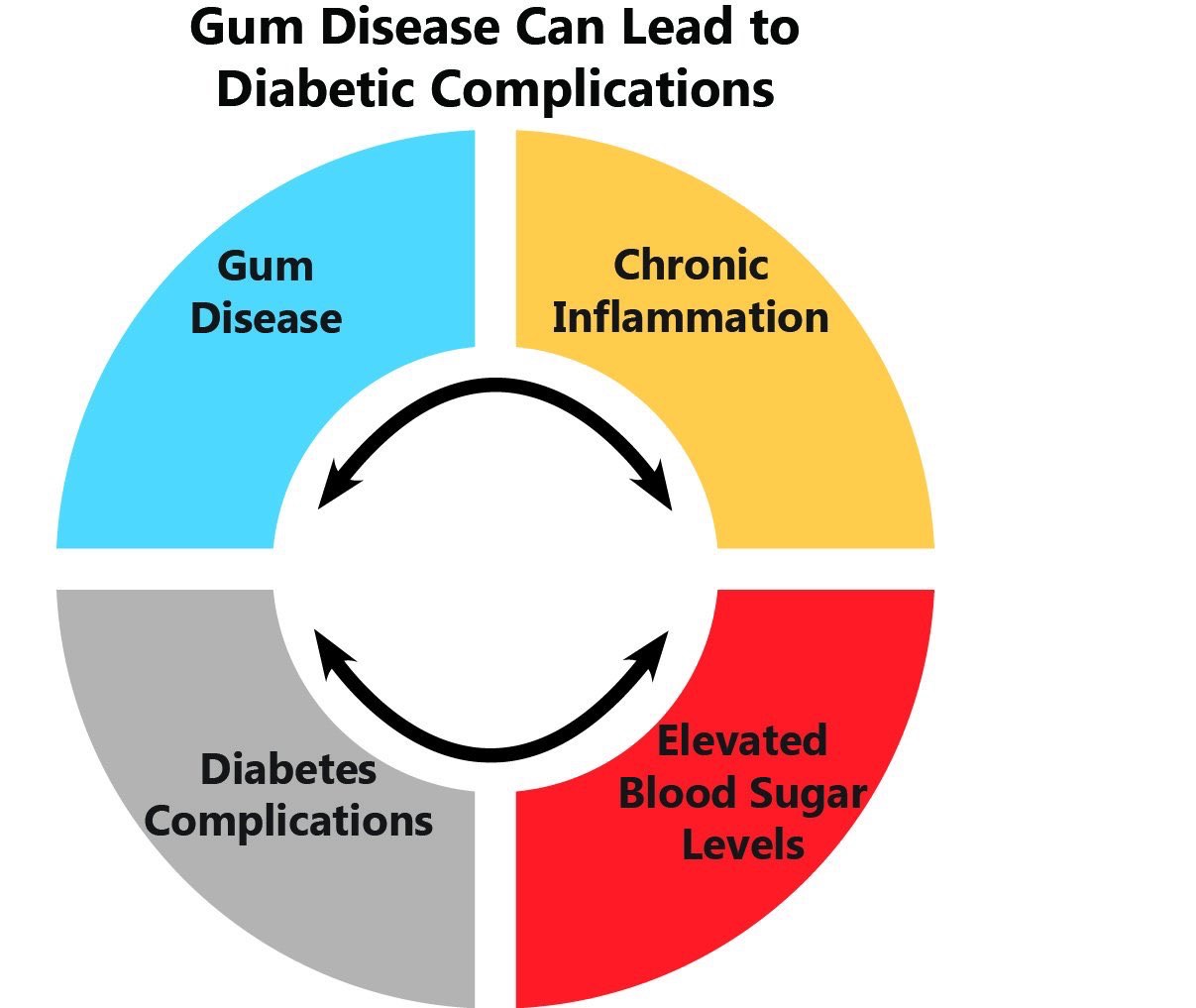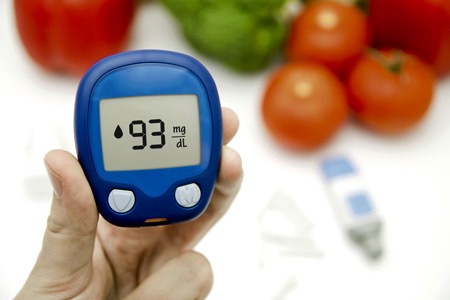
Diabetes affects your body's ability to process sugar. High blood sugar levels can cause problems with your eyes, nerves, kidneys, heart and other parts of your body. Gum disease affects the structures that support teeth. However...did you know that there is a connection between diabetes and gum disease?
Symptoms of Diabetes:

- excessive thirst
- increased urination
- unexplained weight loss
- unexplained fatigue
Let your medical doctor know if you are experiencing any of the above.
After a blood test, you may be told by your doctor that you have high blood sugar.
Diabetes can also cause you to lose consciousness if your blood sugar falls too low.
How Untreated Diabetes Can Affect Your Mouth:
- You may have less saliva, causing your mouth to feel dry
- You may experience a burning sensation on your tongue because your mouth is dry.
- If your mouth is dry, chewing and speech may be uncomfortable.
- With less saliva to protect your teeth, you're at higher risk cavities
- Your gums may become inflamed and bleed often. This is known as 'gingivitis'.
- More advanced gum disease may develop, known as 'periodontitis'. Periodontitis is the most common dental disease affecting those living with diabetes. It can lead to tooth loss.
- You may not be able to taste your food as well.
- You may experience delayed wound healing. It may take longer for you to heal after dental treatments such as having a tooth removed or any other oral surgery.
- You may experience more mouth ulcers.
- You may be susceptible to infections inside your mouth such as 'Thrush', an oral fungal infection caused by the yeast 'Candida albicans', commonly known as 'Candida'.
- You may have more difficulty wearing dentures.
- For children with diabetes, teeth may erupt at an earlier age than is typical.
The Diabetes/Gum Disease Cycle:
 Some people with advanced gum disease have a harder time keeping their blood sugar levels under control, whereas other people, whose blood sugar is not well controlled, may have more trouble with gum disease!
Some people with advanced gum disease have a harder time keeping their blood sugar levels under control, whereas other people, whose blood sugar is not well controlled, may have more trouble with gum disease!
"People with diabetes are up to three times more likely to develop gum disease. Gum disease can lead to higher blood sugar. It's a cycle that needs to be stopped."
"Diabetes and Your Oral Health" - mightymouth.org
How to have a healthy mouth and help control your diabetes:

- Control your blood sugar levels. Use your diabetes-related medications as directed, changing to a healthier diet and even exercising more can help. Good blood sugar control will also help your body fight any bacterial or fungal infections in your mouth and help relieve dry mouth caused by diabetes.
- Avoid smoking
- If you wear a denture, clean it well each day.
- Maintain good oral hygiene. Our Dental Hygiene team is happy to help develop an oral hygiene plan that's right for you!
- Have regular dental cleanings and checkups. Having thorough dental cleanings can help to lower your hBA1c (This is the lab test that shows your average level of blood sugar over the previous three months. It indicates how well you are controlling your diabetes.) Plan your dental treatment at a time that works well regarding your meals and medications needed to manage your diabetes.

 At
At